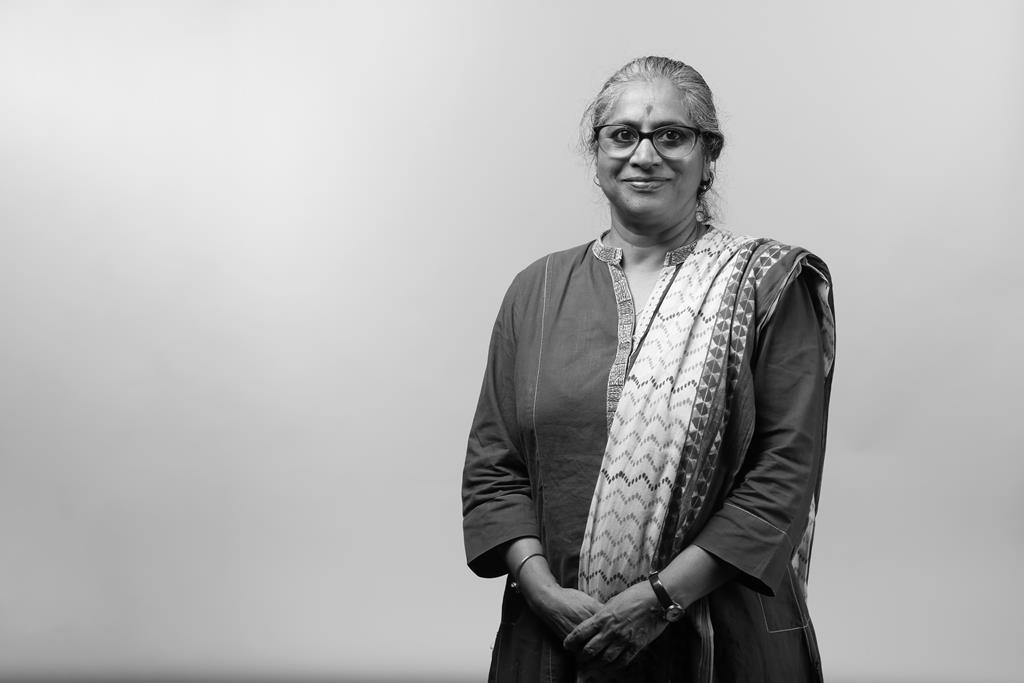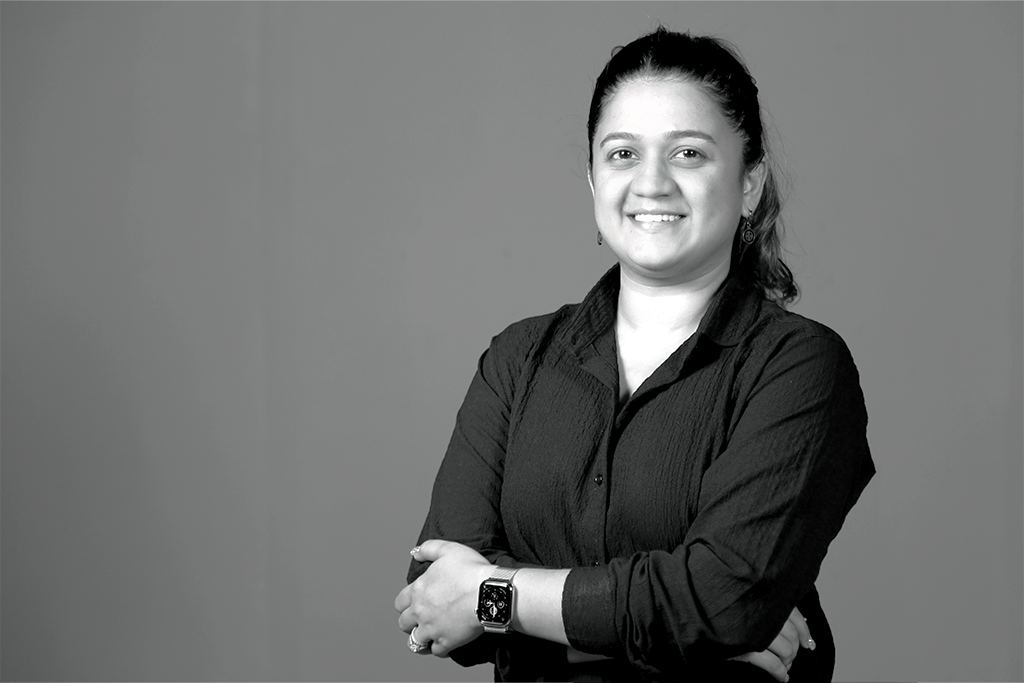Interior Space and Furniture Design
Interior Space and Furniture Design discipline focuses on designing and planning of interior spaces for all kinds of human needs. The learners concentrate on designing spaces – interior and exterior - according to their functional hierarchies and interrelationships. Spaces to be more functional and aesthetic require components like furniture, seating, storage, lighting etc, so only Interior Design alone is not sufficient. The interior space design should be integrated with furniture & accessories, and both should have a harmonious interaction .This makes the built space respond like an efficient and welldesigned system. This approach imparts the learner a unique edge than merely "interior decoration". Of the many Interior Space and Furniture Design courses the one at MIT ID emphasizes on the holistic learning.
Bachelors of Design: Interior Space & Furniture Design
The bachelors’ program in Interior Space and Furniture Design is structured with the sole objective of creating sensitive space designers who can create sensible spaces. With an intense foundation in first year, the learner undergoes courses at each semester with a blend of space design as well as furniture design. The structure is based on five verticals of Skill based inputs, Technological inputs, Space & Form studies, Design Context & Design Projects. This multifaceted approach enables the learners to look at space in holistic manner and design the interiors and furniture to enhance its functionality. The unique aspect of Interior Space and Furniture Design programs at MIT ID as compared to other Space Design courses is the emphasis on hands on approach. The pedagogy focuses on the deliverance of the core subject with an intension to cater to not only the big industry but also to the small scale and rural industries and handicrafts sector. An ISFD graduate is thus capable of handling different types of space design projects & designing furniture along with their execution independently.
Masters of Design: Interior Space & Furniture Design
The masters’ program in Interior Space and Furniture Design offers specialisation for all design graduates who seek material based hands on explorations in space & furniture domain. The course nurtures an attitude towards detailing focused space design, prototype oriented furniture design or to space styling through emphasis on CMF. The course is structured with a focus on developing design skills in first semester, a design realisation oriented second semester & a practical choice based third semester that develops a graduate to a focused & confident space & furniture designer. A learner would further become sensitive towards Indian craft & cultural aspects affecting user’s spatial behaviour & understanding. ISFD department encourages research as a part of its training in space & furniture design as a tool of change for sustainable competitive advantage. The postgraduate learner thus would consolidate a portfolio, where the attained competences and the work of specific domain for each individual would stand out as a personal brand.
COURSE DETAILS
B.Des
Eligibility:
10 + 2 (in any discipline)
Course Structure
Duration:
4 years
- Semester 1
- Semester 2
- Semester 3
- Semester 4
- Semester 5
- Semester 6
- Semester 7
- Semester 8
| Course Code | Course Name | Credits |
| GFNFD101 | Design Overview | 0 |
| GFNFD102 | Design Drawing 1 | 4 |
| GFNFD103 | Fundamentals of Design 1 (Colour) | 3 |
| GFNFD104 | Fundamentals of Design 2 (Geometry) | 1 |
| GFNFD105 | Fundamentals of Design 3 (Materials) | 4 |
| GFNDS106 | Fundamentals of Design 4 (Form Space and Structure) | 4 |
| GFNDG107 | Digital Methods 1 | 2 |
| GFNDC108 | Inter Design Studies 1 (Environ Exposure) | 1 |
| Course Code | Course Name | Credits |
| GFNFD201 | Design Drawing 2 : Freehand , Analytical & Perspective | 3 |
| GFNFD202 | Fundamentals of Design 5 : Colour II | 2 |
| GFNFD203 | Fundamentals of Design 6 : Solid Geometry | 2 |
| GFNFD204 | Fundamentals of Design 7 : Three Dimensionalaties of Form , Space & Structure | 3 |
| GFNFD205 | Fundamentals of Design 8 : Materials | 3 |
| GFNDS206 | Digital Methods 2 : Advanced Image Processing and Vector Graphics Applications | 1 |
| GFNPR207 | Design Process : Problem Solving | 5 |
| GFNDC208 | Interdesign Studies 2 : Urban Environment Exposure | 1 |
| Course Code | Course Name | Credits |
| GIFD301 | Design Drawing 3 : Representation and Technical Drawing | 2 |
| GIFS302 | Space & Form Studies 1 | 4 |
| GIST303 | Furniture Technology 1 : Materials & Processes | 4 |
| GIST304 | Design Project 1 : Analysis of Space & Furniture | 6 |
| GIDC305 | Digital Methods 3 | 2 |
| GIPR306 | Inter Design Studies 3 : Craft Research | 2 |
| Course Code | Course Name | Credits |
| GIST401 | Furniture Technology 1 : Mechanisms, Structures & Joineries | 4 |
| GIFS402 | Space & Form Studies 2 : Experiential Design | 4 |
| GIDG403 | Design Project 2 : Space Design 1 | 6 |
| GIPR404 | Design Project 3 : Furniture Design 1 | 6 |
| GIPR405 | Design Context 1 : Design Documentation (Self Study) | 0 |
| GIDC406 | Design Context 2 : History of Design (Self Study) | 0 |
| Course Code | Course Name | Credits |
| GIFS501 | Space & Form Studies 3 | 2 |
| GIST502 | Building Services & Technology | 2 |
| GIDC503 | Design Context 3 : History of Furniture (Self Study) | 0 |
| GIPR504 | Design Project 4 : Design for Special Interiors | 4 |
| GIPR505 | Design Project 5 : Furniture Design 2 | 6 |
| GIPR506 | Design Project 6 : Space Design 2 | 6 |
| Course Code | Course Name | Credits |
| GIFS601 | Space & Form Studies 4 | 2 |
| GIDC602 | Design Context 4 : Open Electives (MITID) | 2 |
| GIPR603 | Design Project 7 : Design Project Elective – Major | 10 |
| GIPR604 | Furniture Technology 3 – Prototype making | 2 |
| GIPR604 | Design Project 8 : Design Project Elective – Minor | 4 |
| Course Code | Course Name | Credits |
| GIFS701 | Space & Form Studies 5 | 2 |
| GIDC702 | Design Context 5 : Open Elective ISFD | 2 |
| GIDC703 | Green Design | 2 |
| GIDC704 | Design Context 6 : Design & Business | 2 |
| GIDC705 | Case Paper Writing | 2 |
| GIPR706 | Design Project 9 : System Thinking + System Design | 10 |
| Course Code | Course Name | Credits |
| GIPR801 | Industrial Internship | 4 |
| GIPR802 | Graduation Project | 16 |
M.Des
Eligibility:
Bachelor’s Degree in Engineering, Architecture, Industrial Design, Interior Design
Age Limit : 30 years
Duration:
2 years
Course Structure
- Semester 1
- Semester 2
- Semester 3
- Semester 4
| Course Code | Course Name | Credits |
| PIFD101 | Design Overview | 0 |
| PIFD102 | Design Drawing 1 | 2 |
| PIFD103 | Colour in Design – Colour Material Finish | 2 |
| PIFD104 | Furniture Technology 1: Materials & Processes | 4 |
| PIFD105 | Space & Form Studies 1 | 4 |
| PIFD106 | Design Project 1: Design Process – Furniture Design 1 | 6 |
| PIPR107 | Inter Design Studies : Craft Research Furniture Design 1 | 2 |
| Course Code | Course Name | Credits |
| PIST201 | Furniture Technology : Mechanisms, Structures and Joineries | 4 |
| PIFS202 | Space & Form Studies 2 | 2 |
| PIPR203 | Design Project 2 : Space Design 1 | 6 |
| PIPR204 | Design Project 3 : Furniture Design 2 | 6 |
| PIPR205 | Furniture Technology 3 – Prototype making | 2 |
| PIDC206 | Design Context 1 : History of Design (Self Study) | 0 |
| PIDG207 | Design Context 2 : Design Documentation (Self Study) | 0 |
| Course Code | Course Name | Credits |
| PIFS301 | Space and Form Studies 3 | 2 |
| PIPR302 | Design Context 3 : Systems Thinking | 2 |
| PIPR303 | Design Context 4 : Case Paper Writing | 2 |
| PIDC304 | Design Project 4 : Design Project Elective – Major | 6 |
| PIDG305 | Design Context 5 : Open elective ISFD | 2 |
| PIDG306 | Design Context 6 : Design and Business | 2 |
| PIDG307 | Design Project 5 : Design Project Elective – Minor | 4 |
| Course Code | Course Name | Credits |
| PIPR401 | Graduation Project | 20 |
STUDENT WORK
Project: Interior & Furniture Elements
by Ved Jirafe
Project: Tatva: Craft Furniture
by Tanvi Kaushal
Project: Foresta Resort & Spa
by Manik Moholkar
Project: A Joint Family Abode
by Rancy Parekh
Project: Modular Storage System
by Preetha Nayak
Project: Luxury Residential Space Design
by Saili Zade
CAREERS
The education at MIT ID has been founded on a philosophy & way learning that can be best described as generalist. All learners spend all their years getting “indoctrinated” with this particular way of learning that they may be later encouraged to select their specialized fields of work.
Taking this thought ahead a passing out graduate of ISED at MITID can choose his area of specialization as a space or a furniture designer.
A learner concentrates on designing interior spaces according to their functional hierarchies and interrelationships.
A learner understands that the user is given the utmost priority & the overall space along with the furniture system satisfies the requirements in all possible ways.
A learner is capable of proposing a space treatment that emphasizes the desired special experience.
A learner is sensitive towards appropriate use of material & exploring it to its maximum capacity.
Launch your career as a professional:
- Interior Designer
- Space Designer
- Experiential Space Designer
- Furniture Designer
- Craft Designer
- Space & Furniture Designer
- Lifestyle Product Designer
- CMF Designer
- Space Stylist
Get recruited and hired by the best of the best
- IKEA INDIA
- Godrej Interio
- Urban Ladder
- Pepperfry
- Furnitech seating
- Steelcase
FACULTY
Prof. Methew Kurein
Head of dept
Prof. Harshit Desai
Head of dept
Asst. Prof. Rajendra Thakre




